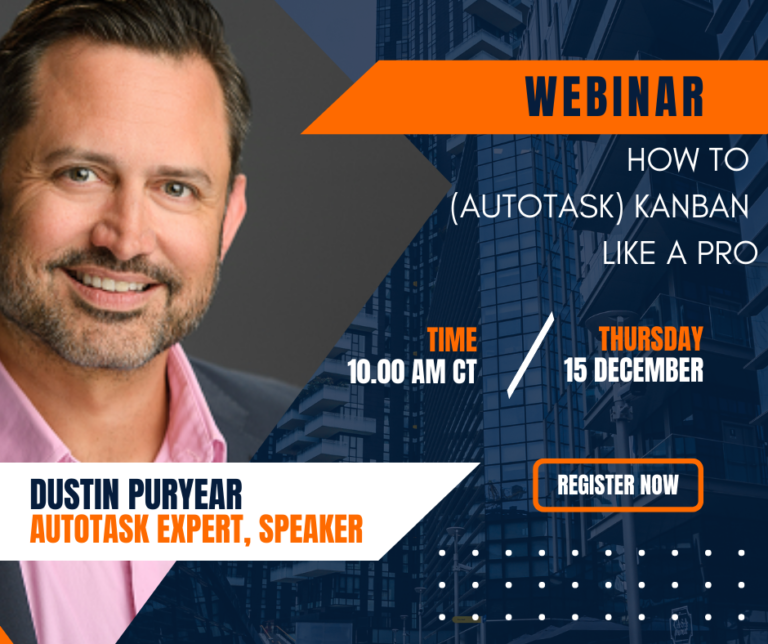Autotask Projects presents a bit of pain to Autotask admins because of the different billing models that can be used not only for the Project itself, but also if you have Change Orders, a mix of T&M and fixed fee, etc.
In this post, I’m going to describe a simple way to configure Autotask Projects so that you can do relatively painless billing but also keep the option of getting more complex when needed.
For most of us, Projects tend to be fixed-priced. Let’s say you are going to do a forklift upgrade of a customer’s network equipment.
The Old Way
Generally, a quote would look like this:
- Labor – $1,000
- Parts – $2,500
When you run the Won Opportunity wizard in the Autotask Opportunity, you will create a Project that has the Project Charges of “Labor, $1000” and “Parts, $1000”. You then need to head off Time billing, so you’d create a Fixed Fee Contract and associate that with the Project. So now you have these entities:
Opportunity “Network Upgrade” -> Project “Network Upgrade” -> Contract: “Network Upgrade”
You would then either delete the Project Charges or have no charges in the Contract. One or the other would be the home of the billing entities. The struggle here is if you suddenly have a T&M need. You can’t do that easily under this system. You also now have either Project Charges to delete or an empty Fixed Fee Contract. It’s just a bit oddball.
The New Way
This is where the magic of Work Types comes into play. In the new system, your Work Types will dictate the billing model and you will NOT need to create a Contract at all. Oh, and you’ll be able to support other types of billing very easily in the same Project.
You will need these Work Types:
- Project Fixed-Priced Work – set to use the Role Rate and be Non-Billable
- Hourly – set to use the Role Rate and be Billable
Next, be sure to have these Products that you will use when quoting:
- Project Labor
- Project Parts
To do a fixed-priced bid, when you quote a customer be sure to set Project Labor to have a Qty of 1, a cost of “estimated hours * internal labor rate,” and a price of “total fixed fee labor.” You would also do something similar for Project Parts. Note, the cost/price will change in every quote, but the Qty for each will remain at 1. (If you want to hide the Project Labor, then just use the Product “Project Fee” and combine your calculations.)
Next, be sure that the Project Labor is linked to an Autotask Material Billing Code that matches your Cost of Sales (COS) in your Chart of Accounts, and your Project Parts is linked to an Autotask Material Billing Code that matches your COGS.
Now, when you run the Win Opportunity wizard, Autotask will create a Project that has two Project Charges that map to your Chart of Accounts. Side note: (Depending on your locality, you need to set Project Labor and Project Parts as taxable or non-taxable.)
Next, ensure every Task in the Project has the Work Type of “Project Fixed-Priced Work”. (This is where Ticket/Task Categories are really awesome by the way.)
What’s have we done up to this point? Well, now, when a tech adds time to the project, it is Non-Billable and shows in your reports as “Project Fixed-Price Work.” And no Fixed-Priced Contract is needed because your Project Charges are billable and exactly what you want to send to the customer.
The Fun Part!
Well, isn’t that great? We got rid of a separate Autotask entity to manage: Contracts.
Want to bill milestones? Great. Just split your Project Fee into, say, three Project Fee charges, each for 1/3 of the total cost. Easy enough.
Suddenly have a Change Order and need to bill T&M for something? No problem! Create a Project Phase “Change Order – ABC,” create the Tasks needed under that Phase, and then set the Work Type for those Tasks to “Hourly.” When time is added to them, they will generate normal hourly billing, while all other Tasks will be non-billable.
The Caveats
Under this approach, you do lose the ability to automatically tie milestone billing to Project Phase completion. That said, this is rarely used outside of larger project. If you are running a larger project, by all means, use a Fixed-Priced Contract if that works better for you.
